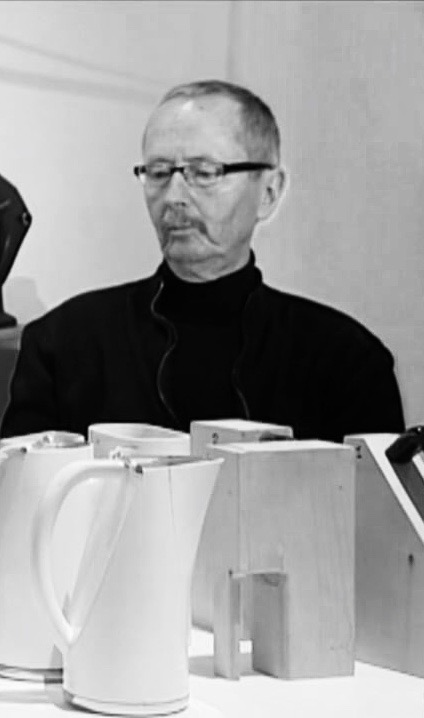Juhlin Sven-Eric

Juhlin Sven-Eric
Sven-Eric Juhlin, born 1940, is a Swedish designer. Sven-Eric Juhlin worked in the 1960s at Gustavsberg’s porcelain factory’s plastic department as a designer of pans, mugs, dishes, bowls and plates, and more.
Sven-Eric Juhlin contributed a modern design methodology when he began in 1967. This included functional analysis. He was one of the founders of Ergonomics Design in 1969, and was a precursor in the design of products for the disabled.
Juhlin was developing the Bread Saw, which was attracted worldwide as a tool for disabled people. It was marketed by Gustavsberg as “cutting aid”. The bread saw was developed around 1970 and became a sales success and design classics. Juhlin also developed a barbell for disabled people (1969) and formed a plastic baby mug found in the Museum of Modern Arts collections.
In 1972, Sven-Eric Juhlin and Maria Benktzon performed ergonomic and physiological studies on grip friendliness for knives and bread saws. This led to an elevated standard for aids for disabled people with a number of ergonomically designed objects for RFSU Rehab, Bahco, Baby Bear and Pfizer, many of which are represented today at the National Museum in Stockholm, the Museum of Modern Art in New York and the Design Museum in London.
One of the objects is the world’s first angled kitchen knife made for Gustavsberg in 1973. The drip-free serving scanner for SAS from 1988 was presented by Maria Benktzon and Sven-Eric Juhlin.
The can has been manufactured in over 500,000 copies and is used by 30 airlines around the world. It was followed by an ergonomically designed serving set in 1992 and by a Juicekanne 1994.

